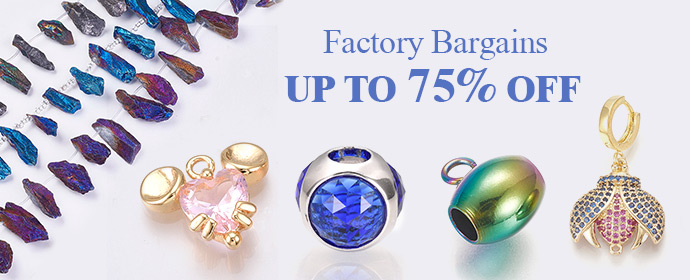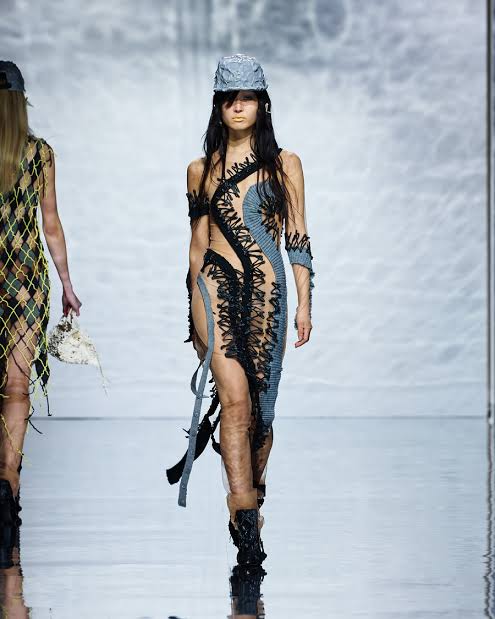Fashion is so much more than just the clothes we wear; it’s a reflection of who we are, where we come from, and how we see the world. In the 21st century, fashion has become a strong way for us to express ourselves, going beyond borders, cultures, and traditions. The blending of global cultures and the rise of social media have played a big part in shaping how we show who we are through our style. But how do global influences really affect our fashion choices today?
Let’s dive into how global cultures impact style choices in fashion in our modern world and how these influences keep the conversation about identity going.

Photo credit: Pinterest
The Transformation of Style in the 21st Century: Techno-Fashion World
Traditionally, fashion was closely tied to location, with unique styles developing within particular cultures. French high fashion, Italian craftsmanship, Japanese streetwear, and African patterns each possessed their own recognizable features. Yet, as technology progressed and travel grew easier, these established boundaries began to fade. Now, in the 21st century, the internet and social media have sped up this merging of global styles, putting fashion from every part of the globe within reach of anyone using a smartphone.
These days, fashion transcends local styles and seasonal lines; it’s a huge, interconnected web of inspiration. Someone might don a kimono-style dress in New York, sport an African print headwrap in Paris, or rock a Scandinavian minimalist look in Tokyo, each item rooted in its own unique cultural heritage. Consequently, the way we choose to dress is deeply entwined with cultural give-and-take, and mixing global influences is now standard practice, not an anomaly.
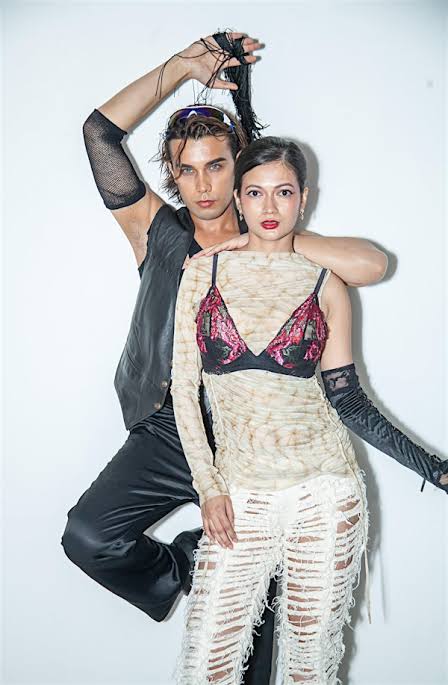
Photo credit: Eventbrite
Social Media’s Impact on Global Fashion: Fashion and Social Influencers
Platforms such as Instagram, TikTok, and Pinterest have transformed the fashion world, offering a stage for people to display their personal style and get inspired by trends worldwide. These platforms have democratized fashion, enabling anyone, no matter where they live or their social standing, to craft their identity through attire. Influencers, fashion bloggers, and designers from all corners of the globe can now connect with a worldwide audience at the click of a button, making fashion trends more welcoming and varied.

Photo credit: Keyi Magazine
The growth of social media also highlights how fashion serves as a means of communicating who we are. People don’t just wear clothes to be in style; they utilize fashion to convey their values, celebrate their heritage, or show support for various causes. For instance, choosing sustainable fashion or backing indigenous artisans through clothing has become a significant way to make a statement in our current society. Fashion has grown beyond mere aesthetics to become a tool for self-expression and social commentary.
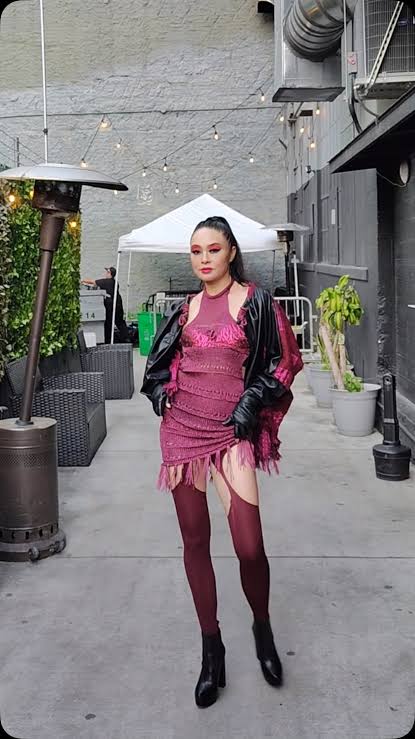
Photo credit: Instagram
Exploring How Worldwide Cultures Shape Fashion Trends
The interconnectedness of our world has birthed a captivating marriage in the realm of style, where time-honored attire effortlessly merges with contemporary chic, giving rise to mixed-mode looks that pay homage to a multitude of cultural backgrounds.
Let’s delve deeply into some significant ways in which global cultures impact fashion decisions in our current times:
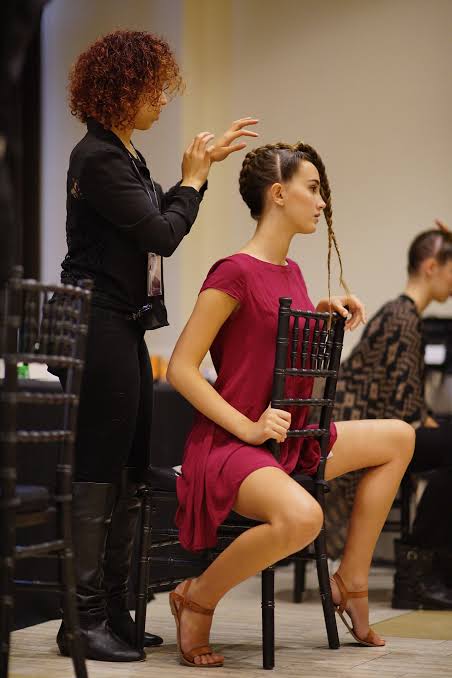
Photo credit: San Francisco Chronicle
1. African Prints and Textiles: There’s been a remarkable upswing in the popularity of African-influenced clothing as of late. Dazzling prints, striking patterns, and sumptuous materials such as kente cloth, Ankara, and mud cloth have secured their place in everyday fashion as well as in luxury design. This vogue is a piece of a larger wave that acknowledges and honors the African heritage, spotlighting its deep-rooted artistic legacy and artisanal skills.
Fashion designers like Ozwald Boateng, Stella Jean, and Kimberly Goldson have fused African heritage with contemporary style, resulting in clothing that’s both trendy and deeply meaningful. African fashion goes beyond looking good; it’s a means of respecting custom, sharing narratives, and celebrating the vibrant tapestry of African culture.
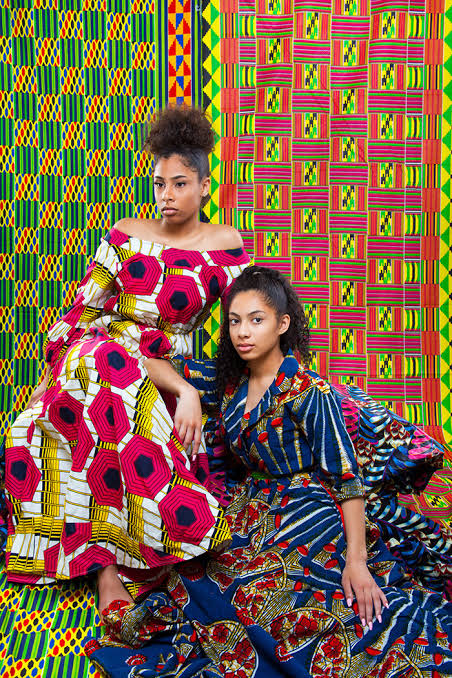
Photo credit: vipsport.gr
2. Japanese Street Fashion: Unique and Innovative
Japanese street fashion, especially the eye-catching style seen in areas like Tokyo’s Harajuku district, has had a huge influence on fashion worldwide. Renowned for its cutting-edge designs, daring accessories, and unique looks, Japanese street fashion celebrates individuality and imagination. This influence is evident in the growing popularity of alternative styles like goth, punk, and kawaii (cute) fashion, which have transcended borders and significantly shaped Western fashion trends.
The idea of “Minimalism” also owes a lot to Japanese aesthetics, particularly in brands like Muji and Uniqlo, which emphasize simple lines, practical design, and top-notch craftsmanship. This minimalist approach has become a major part of global fashion trends, focusing on understated elegance and simplicity instead of making a loud statement.
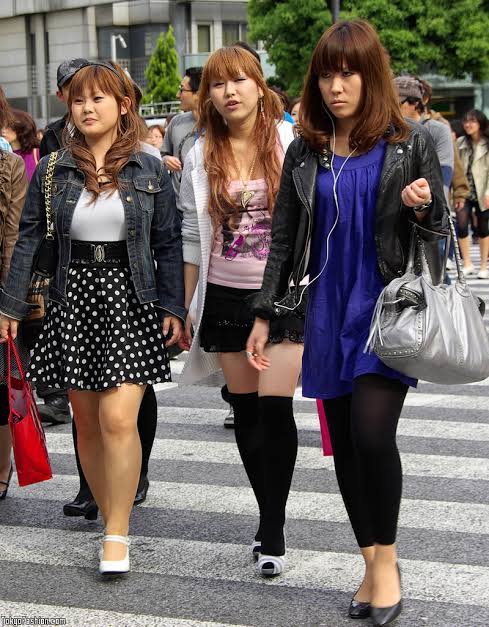
Photo credit: Flickr
3. Latin American Influences: Fashion World of Lively Carnival Looks
Latin American styles have had a big impact on fashion, from the bright patterns found in Mexican fabrics to the lively carnival looks from Brazil. You’ll often see these influences in all kinds of clothing, from everyday wear to high-end designer pieces, with their vivid colors, detailed stitching, and striking patterns. Designers like Carolina Herrera from Venezuela and Isabel Marant from France often use Latin American culture as inspiration, adding lively colors and fun patterns to their collections.
Latin American fashion isn’t just about how things look; it’s also about celebrating family, community, and happiness, which comes through in how warm and vibrant the clothes are. This welcoming and festive feeling has become popular around the world, making fashion more diverse and open to expressing emotions.
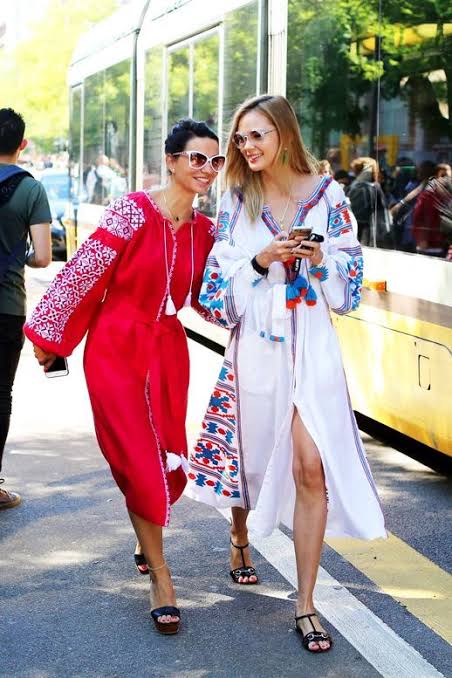
Photo credit: Pinterest
4. Middle Eastern Luxury Fashion: Fashion Diversity in Desert
Middle Eastern luxury fashion, especially from places like Lebanon and Dubai, has been key in shaping our idea of high-end style in the 21st century. These designs, known for their lavish fabrics, detailed embroidery, and striking, attention-grabbing shapes, have had a big impact on the global market for luxury fashion. Designers such as Elie Saab and Zuhair Murad are now famous around the world, proving that Middle Eastern fashion is more than just about being extravagant; it’s about conveying narratives through the art of making clothes.
Additionally, the modest fashion trend, which focuses on clothing that is both fashionable and modest, has really taken off globally. Brands that cater to this increasing desire for stylish yet modest pieces, including hijabs, abayas, and tunics, have found the sweet spot where global culture and personal identity meet. They offer choices that let women showcase their unique style while staying true to their values.
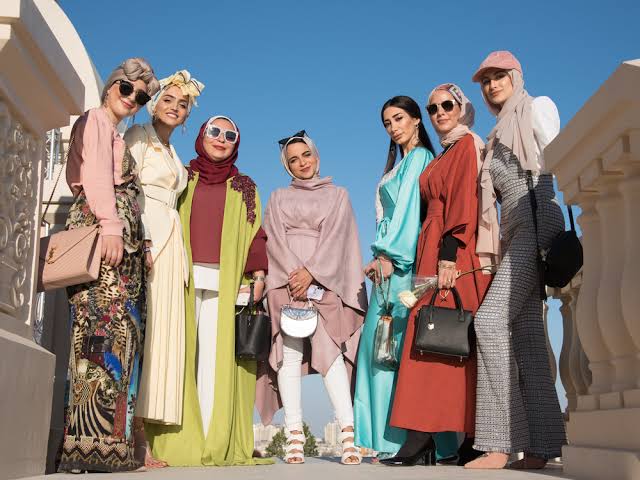
Photo credit: The Zenith Magazine
Fashion and Identity: A Deep Connection
It’s becoming more and more obvious that as fashion changes, it’s not just about how we look on the surface; it’s a deep part of who we are as people. The clothes we choose to wear today are influenced by a mix of culture, politics, and society, all defining what it means to live in the 21st century.
Fashion lets us try out different sides of ourselves, telling everyone about who we are and our background, while also joining a worldwide community that values differences. We can use fashion to bring in parts of our family’s culture or to try out new styles from around the world. It’s a way to show who we are and to include everyone.
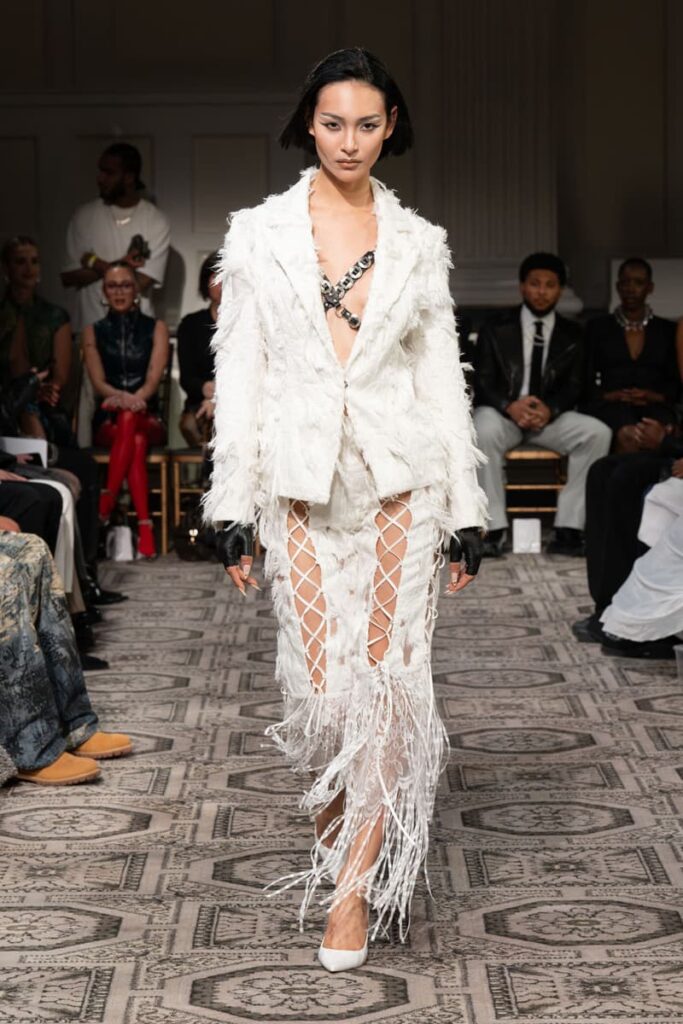
Photo credit: Hypebeast
FAQs on Fashion and Identity in the 21st Century
- Q1: How has globalization impacted fashion in the 21st century?
- A: Globalization has enabled fashion to cross geographical borders, producing a mix of fashions across cultures. The advent of the internet and social media has meant that trends are now able to travel across the world, making it possible for people to merge elements from a number of different cultures into their fashion.
- Q2: What are a few examples of cultural influences in contemporary fashion?
- A: African prints, Japanese streetwear, Latin American fabrics, and Middle Eastern high-end clothing are just some of the ways that global cultures are influencing contemporary fashion. They appear in print patterns, materials, and construction methods that have become a part of modern-day fashion.

Photo credit: KALTBLUT Magazine
- Q3: What is the connection between fashion and identity in today’s world?
- A: Fashion is a way of expressing oneself, and in today’s 21st century, it is an expression of our personal, cultural, and social identities. Individuals utilize fashion as a means of communicating who they are, what they believe, and where they belong, so it is a major means of communicating individuality and belonging.
- Q4: Is fashion capable of political statement making?
- A: Yes, fashion has also evolved into being a political and social statement medium. From wearing environmentally friendly or ethical clothing, to promoting a specific cause, or displaying cultural heritage, clothing choice can be quite meaningful in our globalized world.
- Q5: How does social media influence fashion trends?
- A: Social media has democratized fashion by providing people with a platform to express their style. Designers, bloggers, and influencers can access a global market, making fashion trends more diverse and inclusive. Social media also magnifies the power of global cultures, and users can combine styles from different parts of the world.

Photo credit: Essence
Final Thoughts: The Modern Fashion World – A Tapestry of Connections
In the 21st century, the way fashion and identity intertwine paints a picture of just how connected our modern world has become. As styles from across the globe influence each other, people can showcase their individuality while also honoring the wide range of cultures that exist. Fashion has gone beyond simply following the latest fads; it’s now a way to share stories, show what you stand for, and appreciate the beauty found in diverse traditions. Looking ahead, the blend of fashion and identity will keep transforming, making fashion a significant way for both individuals and cultures to express themselves.
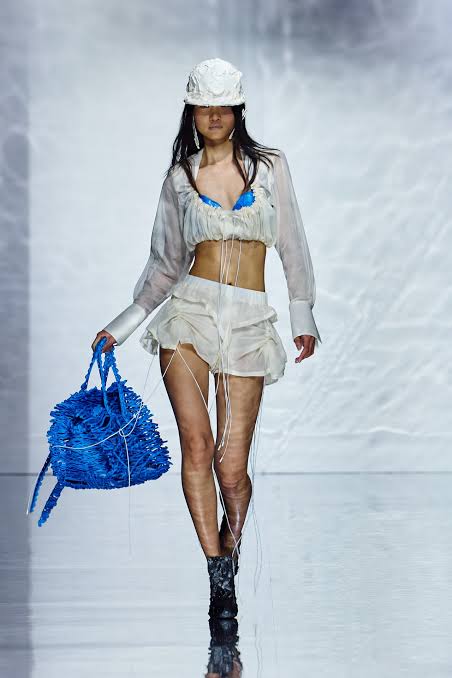
Photo credit: Vogue
Author: Raja Bahar Khan Soomro
Further Suggested Readings
1. Summer Outfit Ideas for Every Occasion Featuring 2025’s Trending Fabrics
2. Lightweight & Luxe: Best Summer Fabrics for 2025
3. Top 10 Summer Fashion Trends to Watch in 2025
4. What Everyone Will Be Wearing This Summer: Fashion Forecasting 2025
5. Summer Makeup Tips for Every Occasion: From Parties to Office Work Makeup Guide 2025
6. Fashion and Heritage in 21st Century: How Traditional Clothing is Making a Comeback Worldwide
7. Correlation of Fashion with Fine Art: Exploring the Creative DNA of Modern Couture Design
Recommend0 recommendationsPublished in apparel, Bathing Suits, Bridal, celebrity fashion, Our Fashion Passion, Petite, Plus Size, Pop Fashion, Skin Care, street style, Uncategorized


